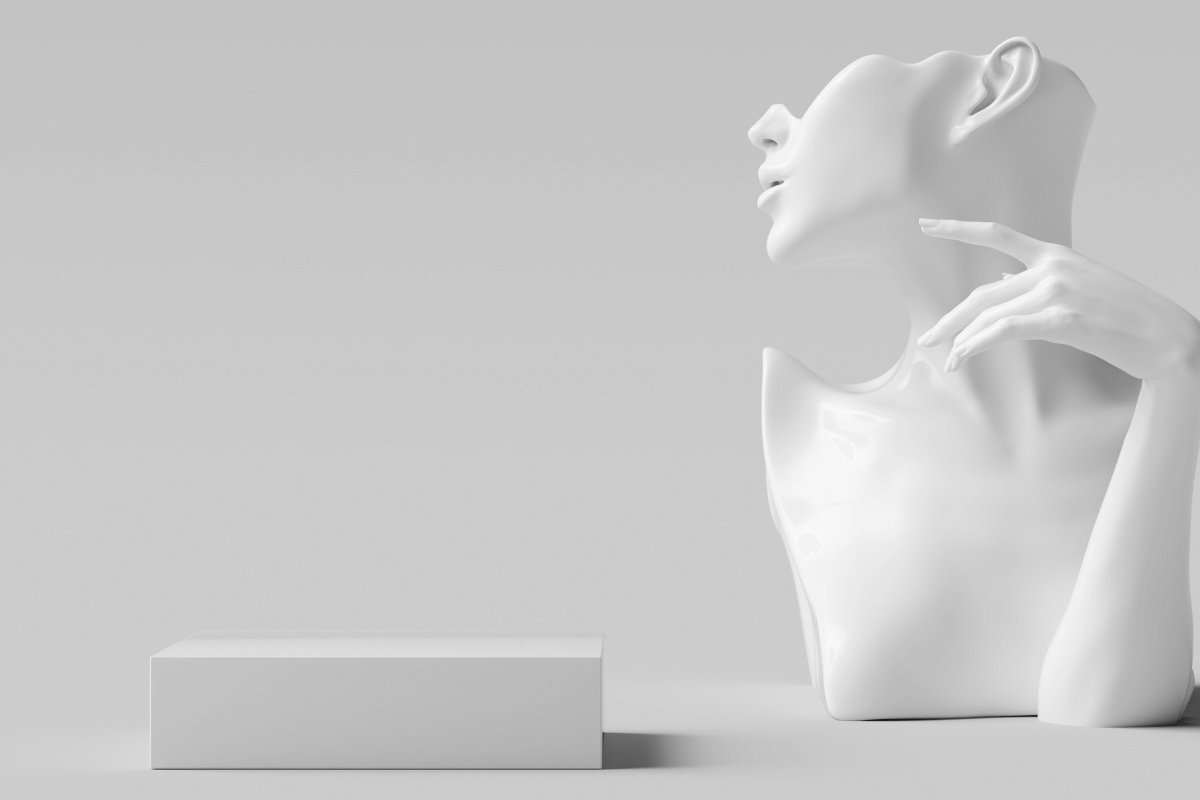3 Ways Addiction Destroys Parts of Self
HOW ADDICTION DESTROYS PARTS OF SELF
Obliterated, annihilated, wasted, gone. There's a reason so many descriptions of heavy substance use and addiction refer to a loss of self – because that's what happens. Of course, everyone already knows that people "lose" certain things under the influence: the ability to remember, control of emotions or behaviours, or the loss of rational thought.
But other kinds of losses also occur for people who are heavy substance users. And these losses are much more insidious and devastating – they are the ones that cut at the very heart of who someone is.
There is a loss of self that comes one drink, one pill, or one toke at a time. Slowly and inevitably, it happens.
How else can we explain the loving parent who drives their children to school intoxicated? Or the person who never thought they would exchange sexual favours for drugs? How about someone who gives up on a dream about sports, music, or education because their substance use has escalated?
Neuroscience helps us understand this painful loss of self and provides insight into what drives the behaviours that create such devastation in the lives of those who struggle with addiction. Substance misuse and addiction take a heavy toll on brain functioning and the complex systems that regulate our thoughts, feelings, behaviours, emotional responses – even how our body functions.
Researchers explain that much of the power of addiction lies in its ability to hijack and even rewire brain circuits meant to help us survive.
Numerous Circuits Involved in Addiction
The negative impacts of substance misuse occur throughout the interconnected systems of our brain. The more someone misuses a substance or substances, the more significant the effect on their brain. Dr Nora Volkow talks about an "expanding cycle of dysfunction". She describes how the negative impact of substance use becomes progressive – more of life is negatively impacted as these brain systems are affected by regular use. It starts to explain how the chaos of addiction takes hold – and how the loss of self happens.
This article, Pleasure Hijack: How Substance Use Hijacks Your Brain, talks about substance use's impacts on two vital brain circuits: the reward system and the stress-response system.
I explain how chronic substance use impacts the process of addiction in these ways:
It desensitizes the reward circuit making pleasure and enjoyment more challenging to experience.
It increases the "anti-rewards": painful emotional and physical states, including anxiety, depression, shame, and irritability.
Chronic substance use leads to a heightened stress response and decreased ability to handle stressors.
These changes in the brain help explain why those with a substance addiction struggle to cut down or stop using even if they desperately want to.
3 Ways Addiction Destroys Vital Parts of Self
But the reward system and the stress-response system are not the only vital systems in our brain impacted by substance use. Three other brain systems are involved in addiction. We need to understand them to grasp what contributes to addiction and what helps explain the loss of self it brings.
1. Self-Awareness
Self-awareness is the capacity to know of ourselves – it is knowing and understanding our thoughts, feelings, motives, and personal strengths and weaknesses. In addition, self-awareness includes identifying our internal experiences like emotions and bodily sensations. Another critical aspect of self-awareness is determining whether a situation is safe or unsafe.
Self-awareness is the ability to have an accurate sense of who I am, how I interact with what's around me, and what it's like to be "me".
Most people are familiar with the idea of “denial” – it’s often just a deficit in self-awareness. For those who experience addiction, this lack of self-awareness shows up in many ways:
They often cannot recognize the problem of addiction in the first place. “I’m fine.” “I’m not the one with the problem.” “It’s not that big of a deal.”
They tend to blame other things for the serious negative consequences they face. “My boss was a jerk.” “I’m just sick (rather than hungover).” “I’m being mistreated.”
There can be a lack of awareness about the life problems creating the problematic use of substances. “I just like to party (rather than looking at the underlying issues like grief, trauma, or mental health issues.)
There can also be a lack of awareness about cues or triggers (emotional, situational, or relational) that trigger the use of substances. “It just happened.” “Suddenly, I was at the liquor store.”
Many cannot pick up on cues of danger or risks associated with risky behaviours. We see these dangerous actions like binge drinking, driving while impaired, or high-risk sexual practices while under the influence of substances.
The struggle with self-awareness is widespread for those in addiction.
Less than 5% of people with a substance use disorder accurately perceive their need for addiction treatment.
Only a small percentage of heavy substance users define their use as problematic even when they face devastating negative consequences such as losing a job or relationship or severe health concerns from substance use.
This capacity for insight and self-awareness is limited for various reasons, including the negative impacts of heavy substance use on brain function. The neuroscience research shows how substance use and addiction hijacks and even rewires essential brain circuits required to help us survive. This includes brain circuits responsible for giving us an accurate sense of self-awareness.
But other reasons contribute to challenges with self-awareness. A history of trauma is common among those with substance misuse and addiction disorders. The research demonstrates a history of trauma (especially childhood trauma) negatively affects how the brain functions.
Trauma is also responsible for disruption in the sense of self that often exists for those with addictions.
Besides trauma, there may be co-occurring mental health issues that impact self-awareness. For example, anxiety and chronic stress also play a significant part in deactivating vital areas of the brain that contribute to accurate self-perception.
We need to be curious about the underlying reasons for lack of self-awareness rather than believing an addict “chooses” to ignore the problem.
2. Self-Regulation
We hear lots about self-regulation and how vital it is to function well. It involves all aspects of who we are: emotions, thoughts, behaviours, our physical body, and our relationships. Self-regulation is part of a wide variety of daily experiences:
Our ability to feel but still control challenging emotions like anger or anxiety.
Being able to have healthy patterns with sleep, appetite, and other bodily functions.
Having tools to manage disruptive thoughts or impulses.
Having the ability to regulate unhealthy behaviours such as substance use.
Self-regulation is an essential function of the human self – it’s another crucial way we define ourselves. Self-regulation contributes to our sense of comfort or safety within ourselves – it helps us be “at home” within ourselves.
Here's the "rub" with substance misuse and self-regulation: Those who have difficulties regulating emotional pain tend to engage in behaviours such as over-eating, smoking, substance use, or gambling as a way to manage their emotional distress.
Dr Bessel van der Kolk has extensively studied the connection between challenges with self-regulation and early childhood trauma. His research shows that early traumatic experiences can overwhelm a child. As a result, it makes it more challenging to develop the ability to self-regulate their emotions, reactions, and thought processes.
Trauma also makes it more likely that someone will turn to substances or behaviours to regulate painful emotional and physical experiences.
We've already discussed how substance use impacts self-awareness. This takes us to another hard reality: self-awareness is necessary for self-regulation. We need awareness of our own emotions and experiences to regulate them. But using drugs or alcohol to " regulate" challenging emotions and bodily states compromises self-awareness, which creates even more challenges in the ability to self-regulate. This is an example of the "expanding cycle of dysfunction" Dr Nora Volkow speaks of as substance use progresses. It helps us see another way the chaos of addiction takes hold and the loss of self occurs.
3. Self-Control
The ability to exercise choice is foundational to our sense of self – it allows us to alter our behaviour to meet specific goals or follow through on plans and values. It helps us follow through on healthy lifestyle choices like exercise or decreasing junk food consumption. It allows us to act on our beliefs and values. Self-control also enables us to make decisions according to long-term plans rather than operating on the principle of instant gratification.
Ask any person with a substance use disorder if they “know” they shouldn’t use, but they still do it anyways. This pattern demonstrates the struggle with self-control for those in addiction.
Dr Nora Volkow, a leading researcher in the neuroscience of addiction, outlines how repeated substance use leads to changes in the brain that alters a person's voluntary control over their behaviours. The brain regions responsible for self-control get disrupted, decreasing the ability to choose not to use. The frontal cortex, the rational part of the brain, works to control destructive or unhealthy actions. Addictive substances impair this self-control mechanism.
When someone has a craving to use, the areas of the brain that create this craving are activated. But, at the same time, those responsible for restraining unhealthy choices get deactivated.
This "hijacking" of the brain's rational part happens entirely outside of conscious thought – it's also the reason that willpower becomes useless. Once again, research shows us that the impacts of trauma and chronic stress also contribute to this "hijacking" process.
All of these changes in the brain help explain why those with addiction struggle to cut down or stop using even if they desperately want to.
But this isn’t the end of the story: recovery and healing the brain are possible! Seek support, access treatment, or speak to a therapist who can help.
Looking for recovery tools?
Check out Recovery Happens - Carrie’s informative course that helps people discover pathways for healing trauma and addiction.


